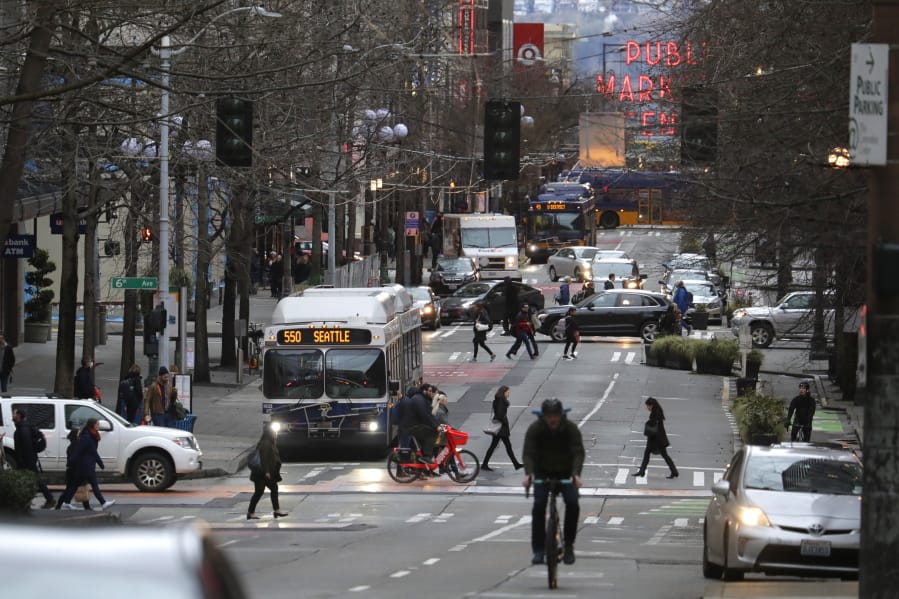SEATTLE — Bus and train operators say so many people are smoking drugs on Seattle-area transit that the fumes, and volatile behavior, create a hazardous work environment that discourages ridership.
King County Metro Transit workers filed 44 security incident reports regarding drug use in 2019, then 73 in 2020 and an unprecedented 398 reports in 2021, by Metro’s count. The database reflects both a real increase and more reporting, officials say.
Amalgamated Transit Union Local 587, representing 4,305 active members, says stronger enforcement is needed, including more police and security guards, with greater authority to remove people. Besides toxic smoke, union officials said crews who maintain transit stops have been punched, spat upon and threatened. Many incidents don’t show up in official reports, union leaders say.
Narcotics smoking aboard transit took hold last summer, and now surpasses needles and marijuana in driver complaints. Since then, at least six operators asked to stop driving midshift, and 14 specifically mentioned feeling headaches, dizziness or irritated breathing.



